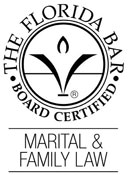
Collaborative Divorce Lawyers In Palm Beach
Collaborative Divorce law is a non-binding process of Alternative Dispute Resolution (ADR). Mr. Schutz is a collaborative law lawyer and member of the International Academy of Collaborative Professionals.
The process begins with the spouses and their professionals (lawyers, accountants, mental health professionals and others) signing a Participation Agreement. The Participation Agreement binds each person to the process of working together to reach an amicable resolution without litigation. Any professionals hired by the spouses are compelled to withdraw from representation of the spouses should the process fail and litigation ensue; thus, the professionals have a vested interest in the success of the process.
How do I know if Collaborative Divorce Law is right for me?
Both parties must be committed to the Collaborative Divorce process in order for it to be successful. It requires good faith negotiations, full disclosure and open communication. A high level of trust is required from both spouses during a time that is typically rife with emotion and stress. If you and your spouse can pledge to be forthright in disclosing assets and income while dealing openly and fairly with each other, Collaborative Law can be a great alternative.
What is the difference between a typical divorce and one reached using Collaborative Divorce Law?
In a typical divorce, the parties rely upon the court system and judges to resolve their disputes. Unfortunately, in a typical divorce you often come to view each other as adversaries, and your divorce may be a battleground. The resulting conflicts take an immense toll on everyone —especially the children’s emotions. Collaborative Practice is by definition a non-adversarial approach. Your lawyers pledge in writing not to go to court. They negotiate in good faith, and work together with you to achieve resolution. Collaborative Practice eases the emotional strains of a breakup, and protects the best interest of the children.
What is the difference between Collaborative Divorce Law and other ADR methods such as mediation?
In mediation, an impartial third party (the mediator) assists the negotiations of both parties and tries to help settle your dispute. However, the mediator cannot give either of you legal advice or be an advocate for either party. Collaborative Practice allows both parties to have lawyers present during the negotiation process to keep settlement as the top priority. Collaborative divorce lawyers, who have training similar to mediators, work with their clients and one another to assure a balanced process that is positive and productive. When there is agreement, a document is drafted by the lawyers, and reviewed and edited by both parties until everyone is satisfied.
Is Collaborative Divorce Law a faster way to get a divorce?
Your situation determines how quickly your divorce process proceeds. However, Collaborative Divorce Law can be more direct and efficient. By focusing on group problem solving instead of an adversarial approach, there is an opportunity for swift solutions. Good faith negotiations, full disclosure and open communications ensure that you cover all the issues in a timely manner. And since you settle out of court, delays caused by the numerous court dates necessary with “traditional” divorce litigation are eliminated.
Can Collaborative Divorce Law save money spent on attorney's fees and other litigation costs?
Yes. The guiding principle of Collaborative Divorce Law is respect. This respectful tone encourages you to show compassion, understanding, and cooperation. Collaborative divorce professionals are trained in non-confrontational negotiation which keeps discussions productive. The goal of Collaborative Divorce Law is to structure a settlement on areas in which the parties are in agreement, not to perpetuate disagreement between the parties and their lawyers. With this in mind, the hostility and adversarial nature of divorce is removed, which decrease the costly litigation of a typical divorce situation.
Who should be part of my Collaborative Divorce Law team?
Your collaborative team is the combination of professionals that you choose to work with to resolve your dispute. It can be simply you and your lawyers. In addition to your lawyers, you can choose to include neutral financial professionals, mental health professionals, parenting coordinators or other specialists you and your spouse believe would be helpful. Your team will guide and support you as problem-solvers, not as adversaries.
Are You...
- Looking for legal advice?
- In need of a legal consultation?
- Looking for answers?
John F. Schutz, P.L. is here to help you and provide legal guidance as needed.

Hear From Our Happy Clients
"Genius divorce lawyer"
John Schutz is a brilliant lawyer. Not only did Mr. Schutz do an excellent job cleaning up the mess from the previous lawyer, he in my estimation was key in me ultimately obtaining a very good outcome. I had a very contentious divorce and the opposing lawyer was very unprofessional and somewhat abusive. Mr. Schutz through his professionalism and excellent people skills was able to reign in the opposing attorney's unprofessional conduct. Mr. Schutz ran circles around the opposing attorney as he was always prepared and was quick on his feet. He is well worth the money in my opinion. Due to his skill and the ability to outclass the opposing attorney, a trial was avoided which ultimately would have been far more costly. Highly recommend.
- Elizabeth








